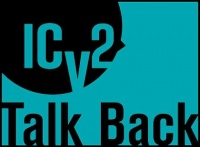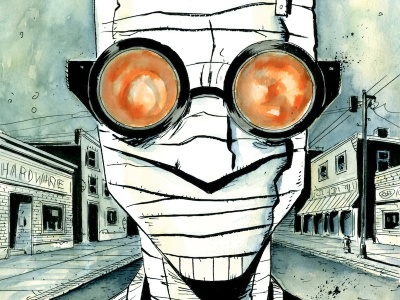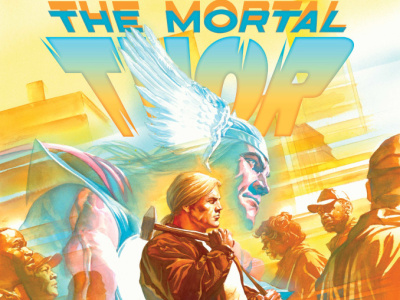 David Loftus of AK Comics in Beloit, Wisconsin writes in and shares his opinion on the contentious subject of creator's rights.
David Loftus of AK Comics in Beloit, Wisconsin writes in and shares his opinion on the contentious subject of creator's rights.I cannot claim to have read the briefs and legal documents involved in any of the creator's rights cases that are usually in the news. I do understand the concepts of "work for hire" and a creator wanting "fair and just compensation" for a character they created.
Now I'm no lawyer, nor do I play one on TV, but weren't the creators in question paid what they thought was "fair and just compensation" at the time? W eren't the majority of said creators employed in a "work for hire" position?
I'll use Siegel and Shuster as an example. And please, as I've said, I haven't read any of the documents, I'm basing my observation from a layman's P.O.V., I apologize if I misstate anything, so don't rip me a new one.
Siegel and Shuster created a character, it became a hit. A company went to them and said, "Hey, we want to buy your creation" (quotation marks are used for a visual aid, not for an exact quote… 'cause I wasn't there) Siegel & Shuster said "Shoot Yes!!" (it was the 1930's, very little cursing back then), and they agreed on a price. Why wasn't that the end of it? Why should the parties in question be entitled to more money than they've already received? If their creation had been a flop and never made the company that bought it any money, would said company had gone after Siegel & Shuster for a refund? I don't think so.
Same thing for Kirby. Wasn't the money he agreed to receive "fair and just compensation" at the time? Wasn't he employed in a "work for hire" position? Why is he entitled to additional monies?
Let's talk about Apple. Did Jobs personally create every device that they sell? I'm guessing no. I'm guessing that the company went out and hired the best and brightest they could find. Sat them down and said "come up with ideas," here's your paycheck. I'm sure Apple has some type of bonus compensation plan in place for such situations, but those kind of deals were not made way back when.
Now do I think that Marvel and DC has treated the employees who helped establish them as the companies they are today in a fair manner? No, I don't. But, from what I've read in articles, and seen on the news, additional payments have been made to some of the gentlemen in question. When is enough enough? How much money should an employee get for creating a character that became popular? Why should a creator(s) get more and more money 10, 40, 70+ years later, just because thier original character is still popular?
I'm not only talking about the examples I mentioned. There are many more, but I think you get the gist of it.
I'll be looking forward to responses to this. Maybe someone can help me understand and clear up some of the issues for me.
The opinions expressed in this Talk Back are solely those of the writer, and do not necessarily reflect the views of the editorial staff of ICv2.com.







